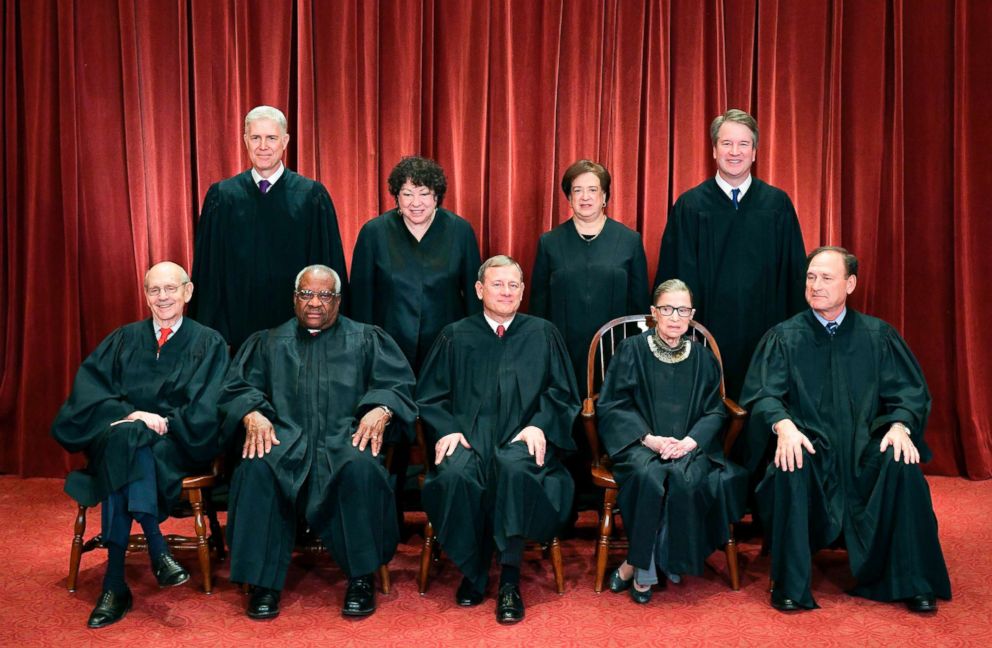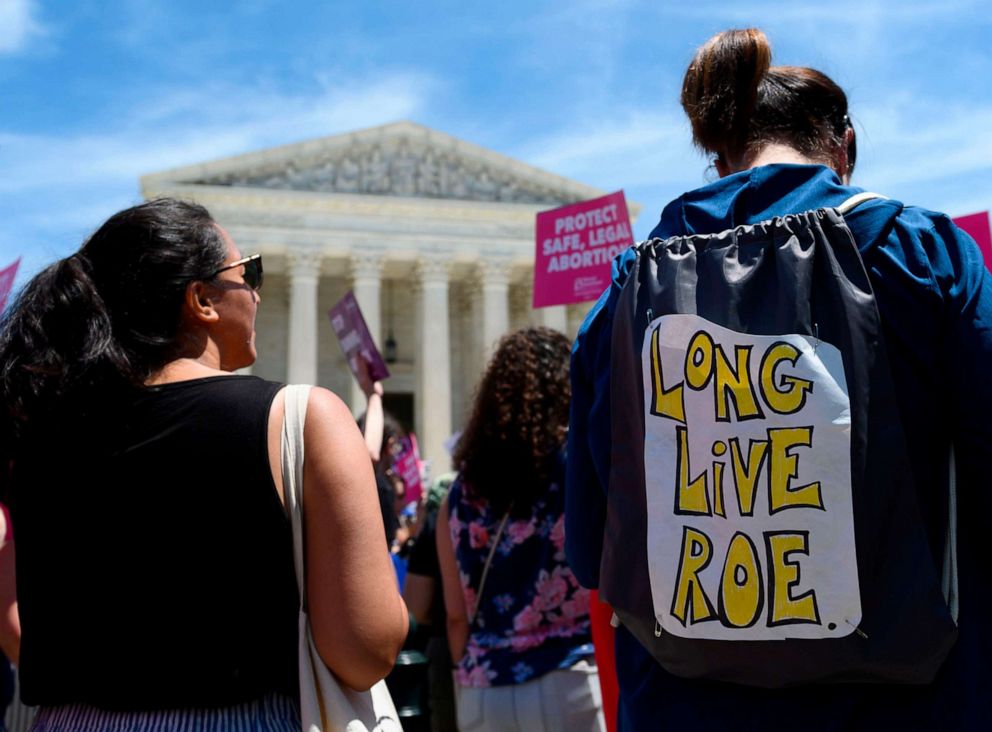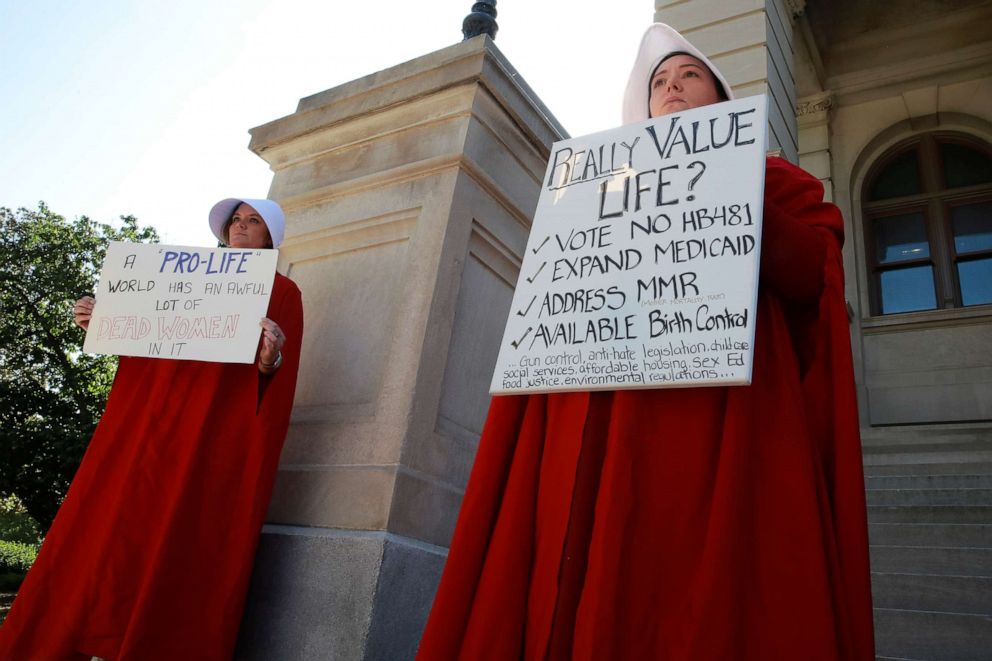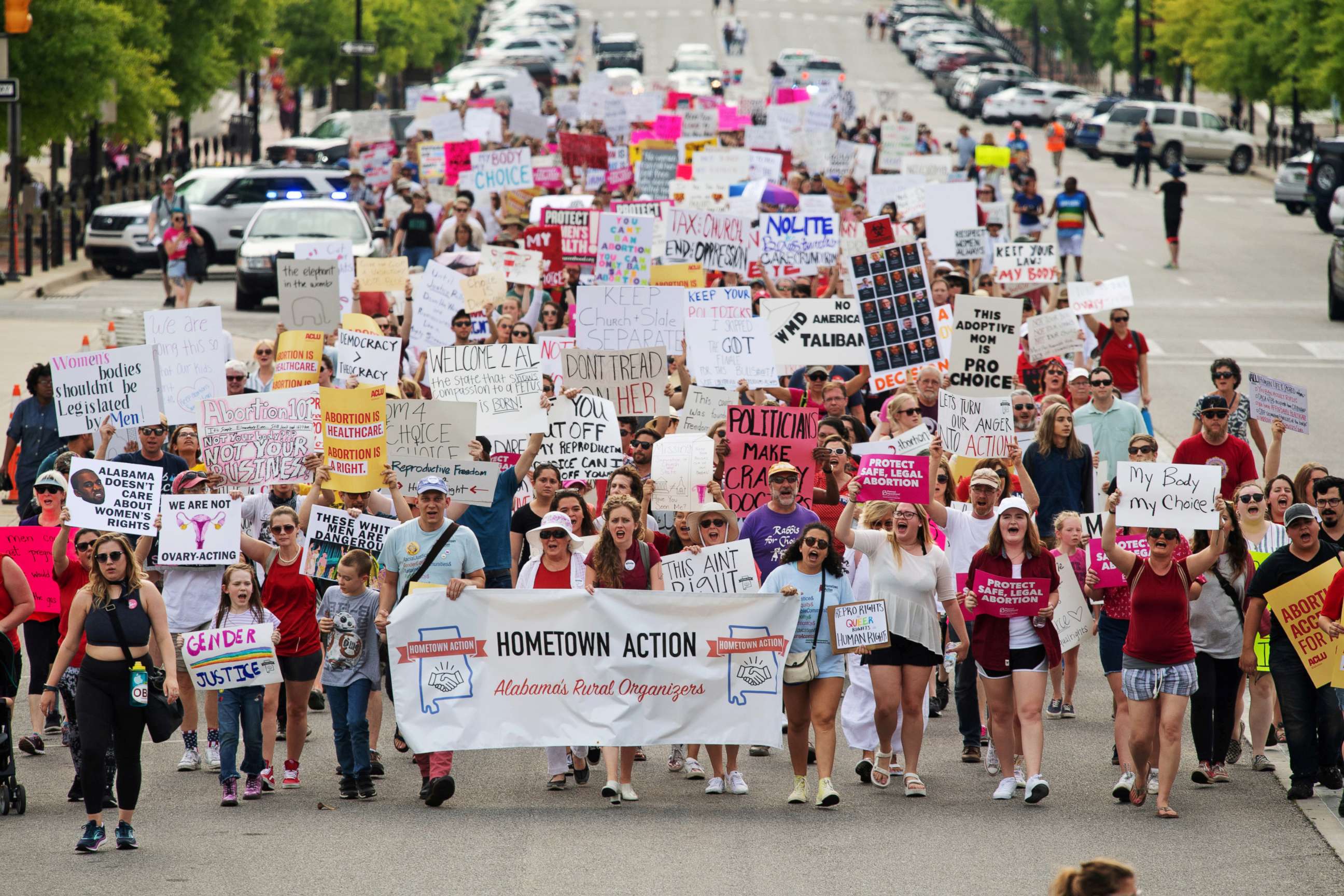What to know about new abortion restrictions and what they could mean for Roe v. Wade
There's been a lot of recent action on the state level.
A series of new abortion laws in a growing number of states has left Americans confused about where the law stands and how abortion access has changed in the past few months, if at all.
While the governors of Georgia and Missouri recently signed bans on abortions in their states after a certain early point in pregnancy, Alabama all but banned abortions entirely.
None of those laws and the many others that have been enacted in other states in recent months have gone into effect, and legislators, women and many others are anxiously waiting to see what will happen -- and that all depends on the Supreme Court.

ABC News Supreme Court Contributor Kate Shaw, a law professor who regularly writes about reproductive rights, explained the new spate of abortion restrictions, acknowledging that they present an unprecedented attack on one of the country's most controversial laws.
"Since Roe v. Wade was decided in 1973, these are absolutely the most extreme laws that have been passed," Shaw said.
What has been happening in the recent push for abortion restrictions?
More than 350 pieces of legislation restricting abortions have been introduced across the country in 2019, according to the Guttmacher Institute, a reproductive rights group

There has been one almost outright ban (Alabama), the implementation of five so-called "heartbeat bills" which ban abortions after the detection of a fetal heartbeat at approximately six weeks (Georgia, Kentucky, Mississippi, Missouri and Ohio), two 18-week bans (Arkansas and Utah), two bans of dialation-and-evacuation (D&E) abortions (Indiana and North Dakota), three so-called "trigger bans" that would automatically ban abortions if Roe was overturned (Arkansas, Kentucky and Tennessee), and bans of abortions based on discriminatory factors in two states (Arkansas and Kentucky).
"These laws represent direct frontal attacks on Roe v. Wade," Shaw said. "Even in states where these laws have been passed, they are not in effect, so all of these laws are being challenged immediately upon passage and all of them either have been or will be blocked by federal courts. So what these laws represent is a desire to get the Supreme Court to revisit Roe v. Wade," she said.
How do these laws differ from prior attempts to restrict abortion access?
"For the last couple of decades, I would say, the strategy has primarily been to restrict access to abortion, but not to attempt to prohibit abortion outright," Shaw said.
There are a number of ways that laws previously restricted abortion: requiring certain medical facility-grade equipment at abortion clinics and forcing women to make several visits to a clinic, sometimes staggered over several days, before being allowed to receive an abortion.
"The law, as it currently stands, is pretty clear that states cannot prohibit abortion outright. They can do a lot of things to regulate abortion, including things that might make it more difficult to access abortion, but they can't prohibit abortion outright, and that is what is so new about this wave of laws we've seen just in the last couple of months," Shaw said.
Shaw noted that Roe currently allows for states to prohibit abortion but only after the point of viability, which is when the fetus is able to survive outside the womb.

Do abortion restrictions impact certain women more than others?
Yes. The cost of abortions, as well as the proximity to facilities that provide abortions, can be hurdles for low-income women that others who are more financially stable will not have to face.
"Low-income women and low-income women of color have, in many states, found it almost impossible for quite some time to access abortion," Shaw said.
How likely is it that any of these new laws go into effect?
"These laws that would prohibit, or virtually prohibit, abortion cannot go into effect right now -- and really anytime soon," Shaw said.
All of the recently enacted abortion bans or laws have faced immediate lawsuits from groups like the American Civil Liberties Union and Planned Parenthood. Shaw expects every challenge to be successful in blocking any state ban.
"They'll be struck down quite quickly and they'll then go up to an intermediate appeals court, which I think will also agree these laws are unconstitutional," she said.
Will the Supreme Court get involved. If so, what happens if they do?
"I don't really think we know the answer to that," Shaw said.
"There are a few different schools of thought. I think there are many people [who] think that these bans are so extreme and would so clearly require the Supreme Court to confront the future of Roe v. Wade that the court will want to avoid taking one of these cases at least right now -- that it would rather maybe take up a case that represents some kind of restriction of abortion but not a total prohibition," she said.

That said, if the court did decide to take up such a case, Shaw said that it is fairly safe to predict that Justices Samuel Alito, Clarence Thomas, Neil Gorsuch and Brett Kavanaugh could vote against Roe, siding in favor of removing the federal right to an abortion.
"The big question is the Chief Justice, John Roberts," Shaw said. "He might worry that the message it would send for the five Republican appointees on the court to join an opinion overturning this nearly-50-year-old precedent, Roe v. Wade, would send a message to the public that the court is just another political body."
How has the Supreme Court ruled on abortion cases in the past?
The most significant case is undoubtedly Roe v. Wade, the landmark 1973 decision that codified a woman's right to have an abortion in the U.S.
In that case, which dealt with abortion as an issue of personal privacy, the court ruled 7-2 in favor of a woman's right to privacy, and therefore, to have the option of obtaining an abortion.

While the case name has become almost synonymous with abortion, there have been several other key cases that legal experts point to when discussing how the Supreme Court could rule, should the issue come before them again.
In the case of Planned Parenthood v. Casey, the court ruled that people should not face an "undue burden" when seeking an abortion, though this was a closer decision, at 5-4.
"In 1992, a little bit like now, many, many people thought Roe was on the chopping block," Shaw said, referencing Planned Parenthood v. Casey.
"The Supreme Court walked up to the edge of overturning Roe, and then pulled back and actually reaffirmed the core holding of Roe v. Wade, and it surprised many, many people when it did that," she said.
How quickly could Roe v. Wade be revisited by the Supreme Court?
The only way that any of these laws could go into effect at the state level, Shaw said, is if the federal law -- Roe v. Wade -- is overturned, which could only be done by the Supreme Court if they decide to revisit an abortion-related case.
"Even if the Supreme Court decided to revisit Roe v. Wade, the fastest that could happen would be a year. So in the very near term, nothing should change in terms of access to abortion," Shaw said.

Why have these laws passed this year?
While a lot of the action has been unfolding in 2019, Shaw says that the real instigator happened in 2018.
"The change that we've seen in 2019 has everything to do with Brett Kavanaugh," she said of the newest Supreme Court Justice.
Kavanaugh filled the seat that had been occupied by Justice Anthony Kennedy, whom Shaw notes "was a Republican appointee, and conservative in many respects, but he had voted in a number of key cases to affirm the core holding of Roe v. Wade."
Kavanaugh has yet to rule on any Supreme Court case tied to abortion, but that hasn't stopped people from predicting how he would if the situation arose.
"I think that the state legislatures have looked at Justice Kavanaugh's record in the D.C. Circuit [Court] and his general philosophy of constitutional interpretation, and they think there's a very strong chance that if he had a case before him that allowed him to reconsider Roe v. Wade, he would vote to overturn it," Shaw said. "And I think they're right to make that assumption."




